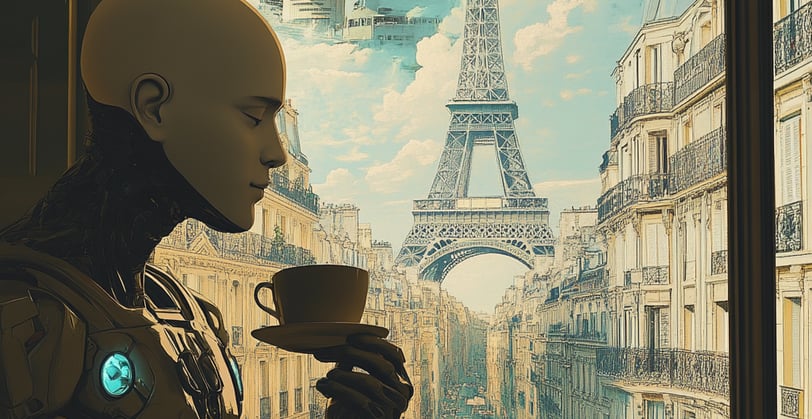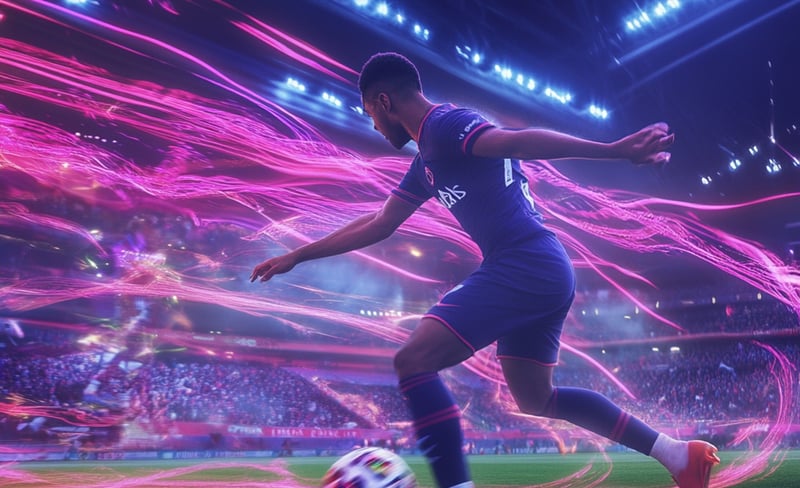How Taking a Coffee Inspired by Manila and Watching PSG Win the Champions League Helped My Business
fabrice jonas
6/2/20254 min read


It began with a simple act: pouring a strong cup of Filipino-style coffee.
Barako beans, bold and wild, a taste both earthy and electric. I wasn’t in Manila — but the memory of its chaotic beauty, its layered soul, was alive in that mug. Outside, Paris was waking up. Inside, I was watching something long considered impossible: Paris Saint-Germain lifting the Champions League trophy.
And in that moment — part Manila, part Paris, part surreal — I found a powerful lesson for my business.
This is not a story about sports. It’s a story about strategy, meaning, and becoming. About learning to build something valuable in a world that spins too fast to understand.
1.Coffee and the Philosophy of Presence
In Manila, coffee is not about performance. It’s about presence. Whether it’s a strong kapeng barako in Batangas, or a 3-in-1 sachet mixed on a plastic chair in Quezon City, the ritual is the same: stop, sit, taste, breathe.
And for entrepreneurs like me — running businesses between Europe and Asia, teaching in fashion schools from Mumbai to Milan, consulting in AI and storytelling — that kind of presence is not a luxury. It’s a discipline.
Simone de Beauvoir once wrote,
“Change your life today. Don’t gamble on the future, act now, without delay.”
We always imagine innovation comes from acceleration. But perhaps it also comes from deceleration — from allowing time to distill thought, to synthesize cultures, and to reconnect with intention.
That’s what that Manila-inspired coffee reminded me of.
That to build a company — especially one working at the crossroads of fashion, AI, and narrative — you don’t need just speed. You need depth.
2.Luis Enrique: The Elegance of Strategic Obsession
As I watched PSG finally win, I was thinking not about the goals, but about the quiet force behind them: Luis Enrique.
A man often misunderstood, always strategic.
He doesn’t pander. He doesn’t shout. He crafts a system. He believes in long-term coherence over short-term applause.
How rare is that today?
In a world obsessed with pivoting every six weeks, Enrique’s philosophy is stubbornly simple: pick a vision, nurture it, and trust the process even when everyone doubts it.
That’s the essence of entrepreneurship in uncertain terrain.
Especially in my world — where cultural codes shift between Paris and Manila, where FashionTech is torn between digital innovation and physical legacy — I need to channel that Enrique energy.
To accept that some clients will not understand.
That some collaborations will collapse.
That the system only starts working after it looks like it’s failing.
There is a kind of elegance in strategic obsession — and I’ve come to embrace it as my model.
3.Sartre in Makati: Business as Existential Practice
No one talks about Sartre in business schools.
But maybe they should.
Jean-Paul Sartre, who once said “Man is nothing else but what he makes of himself,” was writing about human freedom — but his insights apply surprisingly well to global entrepreneurship.
When I create workshops for students in Mumbai or pitch AI strategies for fashion houses in Asia, I often feel like I’m building meaning out of air. There is no clear playbook. No “Series A” comfort. Just me, the unknown, and a deep need to make something useful, beautiful, and cross-cultural.
That’s existentialism.
We are not waiting for permission. We are choosing, daily, to invent frameworks, to invent our narrative, and to accept the consequences.
That’s the real entrepreneurial journey — not the funding rounds or the exit stories.
But the commitment to freedom with accountability.
And let’s be honest: if Sartre had Zoom, he’d probably spend most of his days in Makati cafés, watching lives unfold and searching for meaning in PowerPoints.
4.Why Multicultural Thinking is Not a Luxury — It’s the Future
What connects my Manila coffee, PSG’s victory, and my consulting work?
Multiplicity.
To build a business today is not to conquer one market — it is to weave between cultures, to listen deeply, and to find harmony between opposite logics.
Paris teaches me structure. Manila teaches me flow.
Luis Enrique teaches me patience. Sartre teaches me absurdity.
Fashion teaches me beauty. AI teaches me patterns.
Together, they teach me how to operate as a 21st-century entrepreneur:
Not by choosing one identity, but by composing many.
My strategy is not a pyramid. It’s a remix.
Final Brew
This blog post was born from a cup of coffee, a Champions League final, and three ghosts: Simone de Beauvoir, Jean-Paul Sartre, and Luis Enrique.
Three different visions.
One shared insight: to build something meaningful, you must choose your style, embrace your contradictions, and keep your eyes open across the world.
So take your next coffee seriously.
It might just hold the key to your next great decision.
All imagines are generated with Midjourney.






Get in touch
Limitless Lab Innovations Pte. Ltd.
2 VENTURE DRIVE #19 - 21, VISION EXCHANGE, SINGAPORE 608526
Contacts
+33.645.070.013.
hello@limitlesstechasia.com
